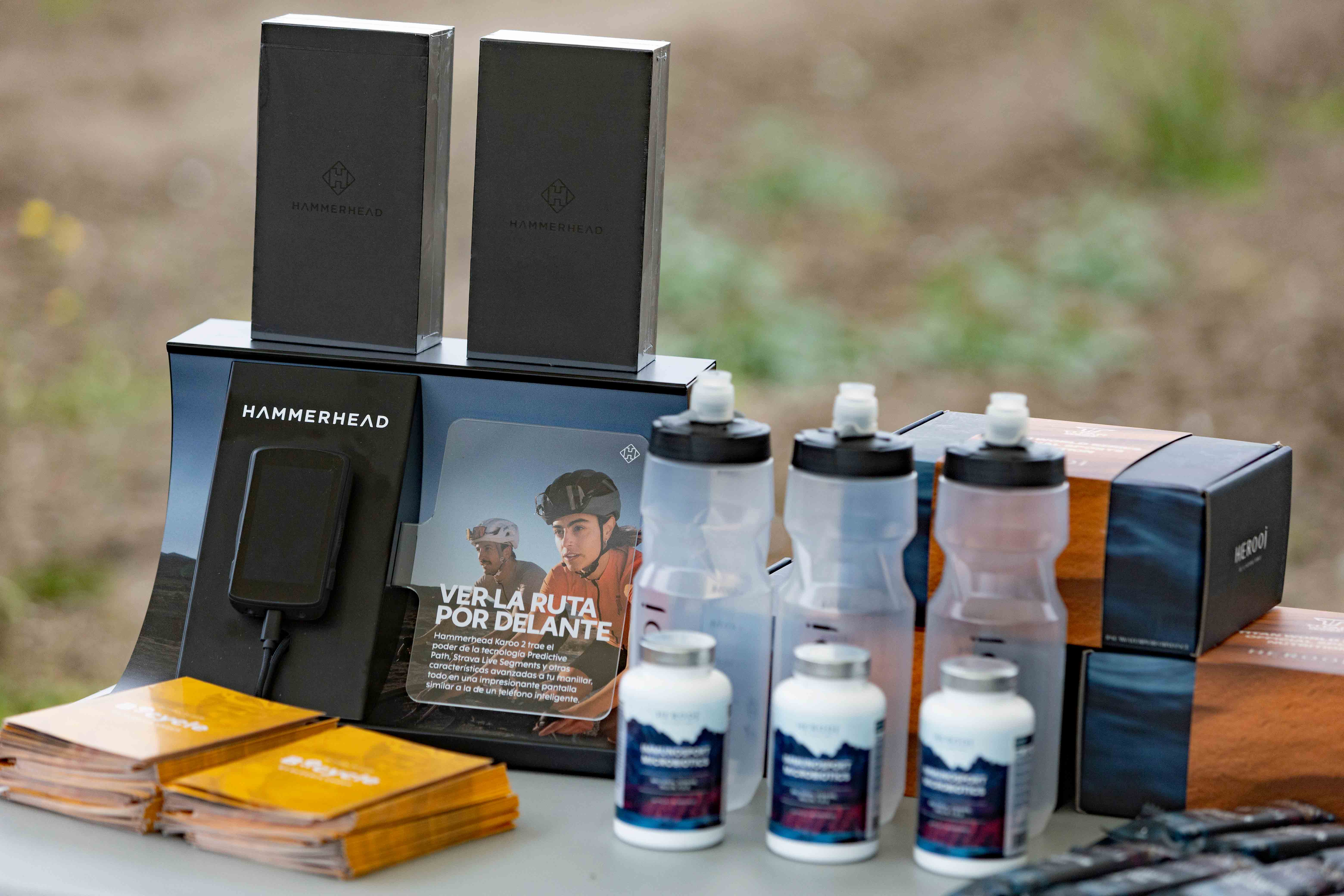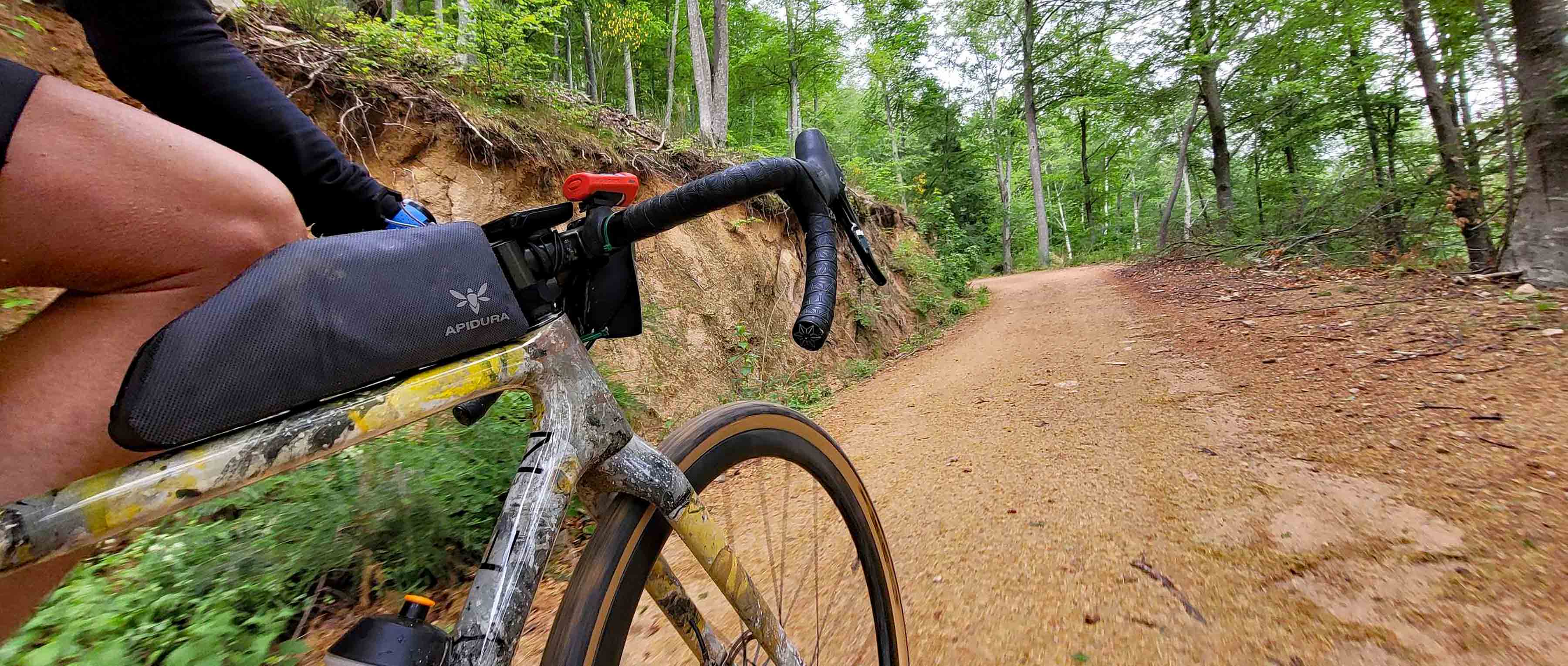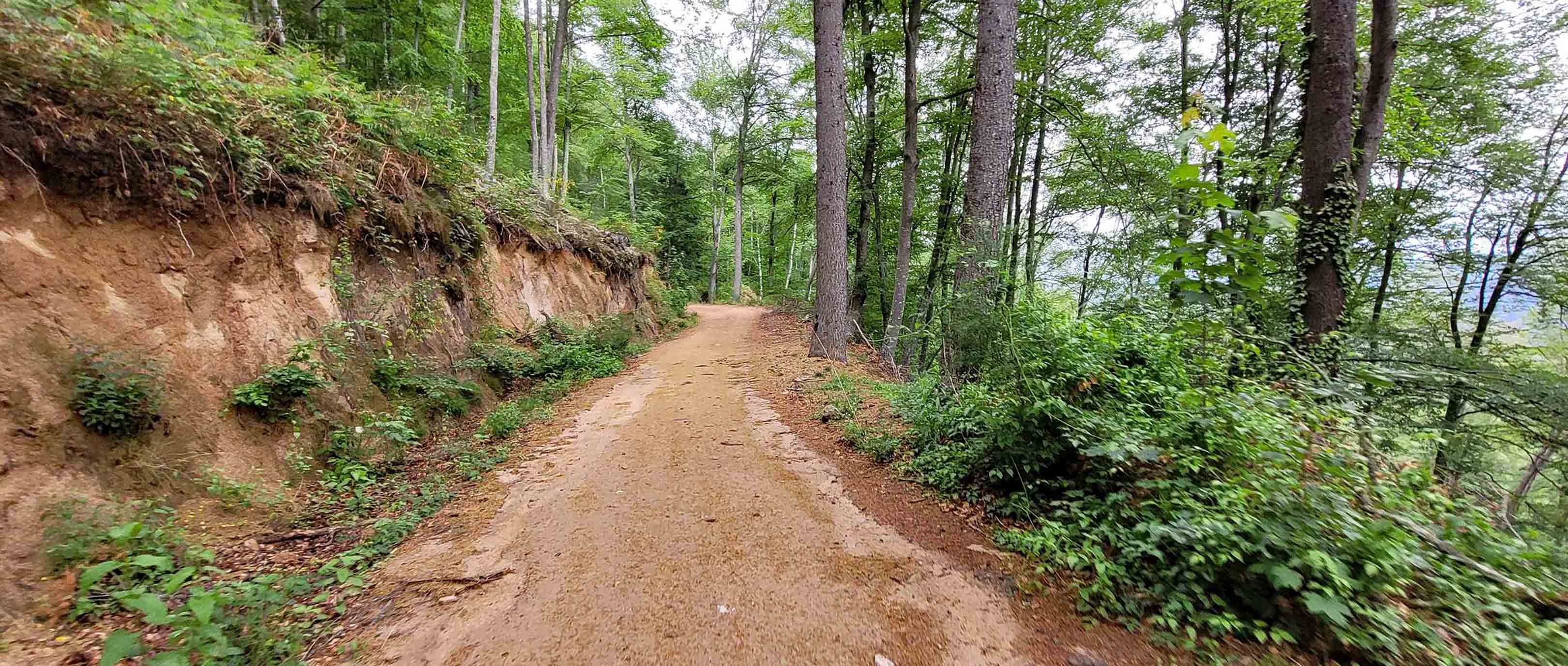Timo Rokitta reports from the inaugural running of the M&M Gravelgrinder, a brand new gravel event set in the Montseny Natural Park and the Montnegre i Corredor Natural Park in Spain.
This year marked the premiere of the first M&M Gravelgrinder. There were over 100 participants across the three distances - 85kms, 120kms and 200kms. The M&M Gravelgrinder aimed to be special by exploring a new gravel area and by using an atypical gravel route. The course was tougher and steeper than riders might have expected but was not technically challenging. The entire concept of the M&M Gravelgrinder was to keep it as sociable as possible, without being a real competition. All the participants can receive prizes and we wanted everyone to enjoy a full day of gravel riding, with plenty of food stations to make it easier for them to finish (or at least, make it easier).

There were games along the route (hidden Easter eggs, only one out of nine was actually found!), a nice village at the end and raffles among all the participants. The plan for the future is to enhance the entire experience, improve in areas that fell short and double the number of participants, while maintaining a personal touch. It's important for the organiser to know each and every one of the riders and I believe it's a nice aspect for all athletes to have that kind of relationship with the event creator. The organiser also plans to add another gravel event in Catalonia, in a different new area, but for now, no further details can be disclosed.

After completing "the Traka 360" in Spain, it was clear to me that I had to participate in the first edition of this event. I hoped the two weeks of recovery time after the 360 kilometers of the Traka would be sufficient. Okay, so actually after competing in the Traka, I rode nearly 1000 kilometers through Andalusia with my gravel bike, but we’ll gloss over that!
The start was like most long-distance gravel events, in the dark, precisely at 6 a.m. in front of the Hotel Alegrie Verde, the event's partner in Santa Susanna on the Costa Brava. Exactly 25 participants dared to take on the long and challenging 200-kilometer route with 5,000 meters of elevation gain. The local police escorted the riders out of the city for the initial stretch. After passing under a bridge, we encountered muddy tracks adorned with huge puddles. In no time, all riders were already covered in mud.

Then came the first of two river crossings. Some riders who attempted to ride through the river fell in the deep sand, but they landed softly in the wet sand. Afterwards, we embarked on the first of 11 designated climbs with a moderate 5-6 percent gradient along a wide track. The descent was followed by a challenging singletrack trail, strewn with rough stones and overgrown bushes that left deep scratches on my arms. Then came the first longer climb with steep sections that forced me to push the bike briefly.
After the aid station in Arbucies, the toughest part of the route awaited. We ascended 700 meters on gravel tracks in one go. At some point, we faced a bumpy descent, partially on trails with rough stones. The situation became even more challenging with the onset of drizzly rain.
Then we went straight into the next climb, but "only" with 600 meters of continuous ascent. At the top, the third aid station awaited, offering noodles, rice and grilled chicken, providing additional energy. A short descent led us to the starting point of the third of three intense climbs. Fortunately, the initial section was paved, reaching over 1,100 meters above sea level. At a restaurant, the track veered left and we followed a track to reach the highest point of the route at 1,280 meters. From here, there were fantastic views all the way to the Montserrat Mountains.
The descent was challenging once again. In the upper section, there were many rocks, and we traversed a very rough track downwards. However, the further down we went, the better the track became. After a reservoir that had very little water due to the limited rainfall in spring, I pushed the throttle until reaching the fourth aid station. There, I encountered Miquel, with whom I rode the remaining 75 kilometers together. I was already looking forward to a more relaxed ride from this point on. However, as the track continued, there were climb after climb. A fast rider kept overtaking us on the downhills, but we caught up with him on the climbs. Before the 6th and final aid station, we saw him standing at the side of the track with a flat tyre. Here, the rule applies once again: Ride the descents safely and attentively. The risk of overlooking a sharp stone is simply too great, especially in ultra-events lasting over 10 hours, when concentration starts to wane.
After nearly 12 hours, Miquel and I rode the final meters along the beach of Calella towards the finish line in Santa Susanna. We crossed the finish line together and were thrilled to have arrived safe and sound. Out of the 25 starters, only 18 reached the finish, which speaks to the toughness of the route. For the year 2024, the organizer dreams of a 300-kilometer route – Mamma Mia!
Images courtesy of Timo Rokitta, Mandy Rodriguez, M&M Gravelgrinder